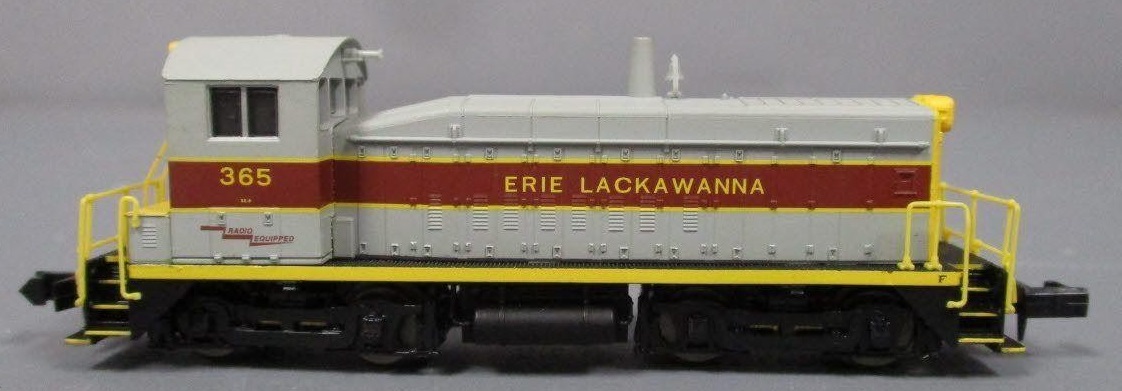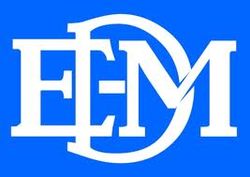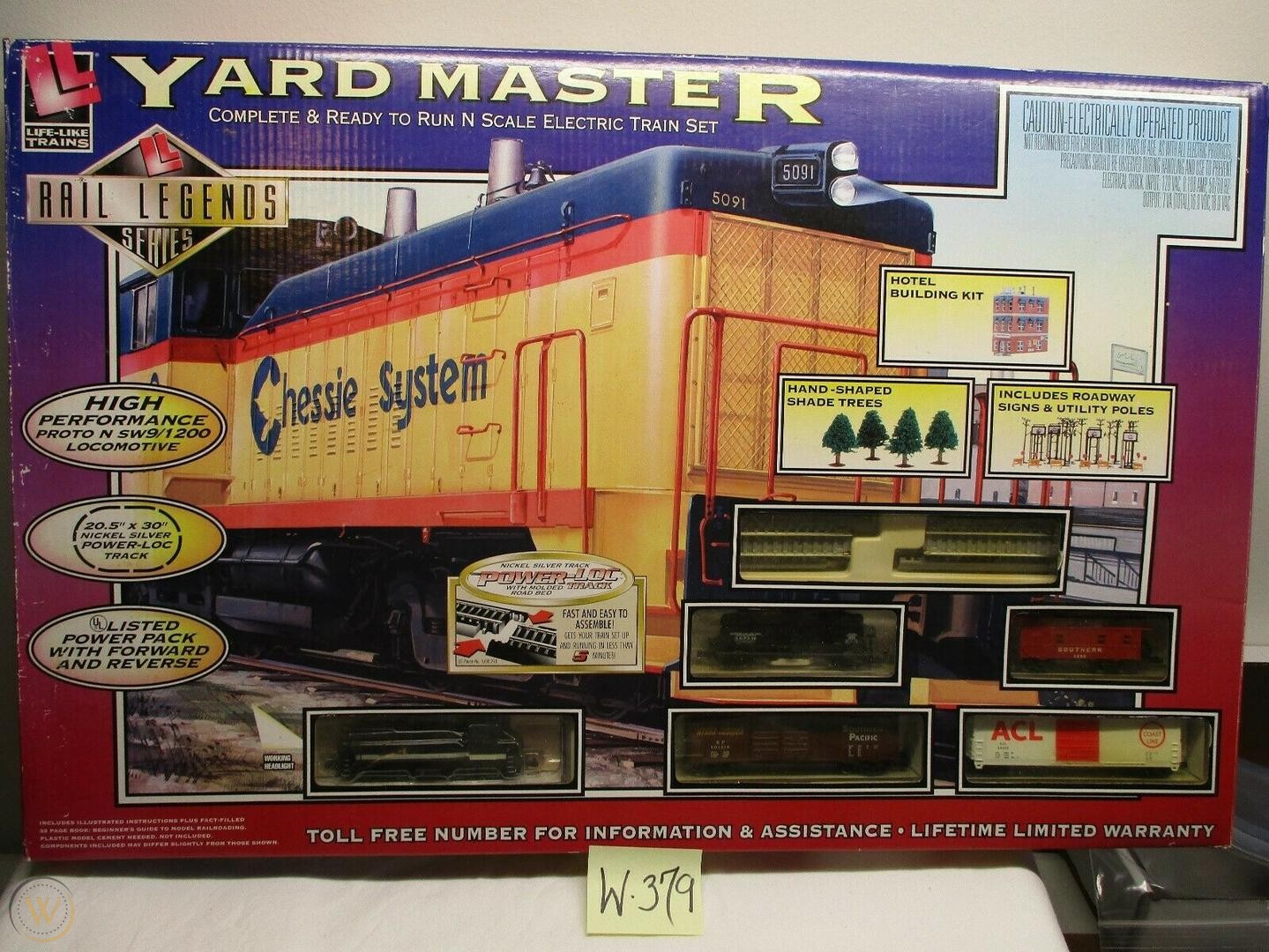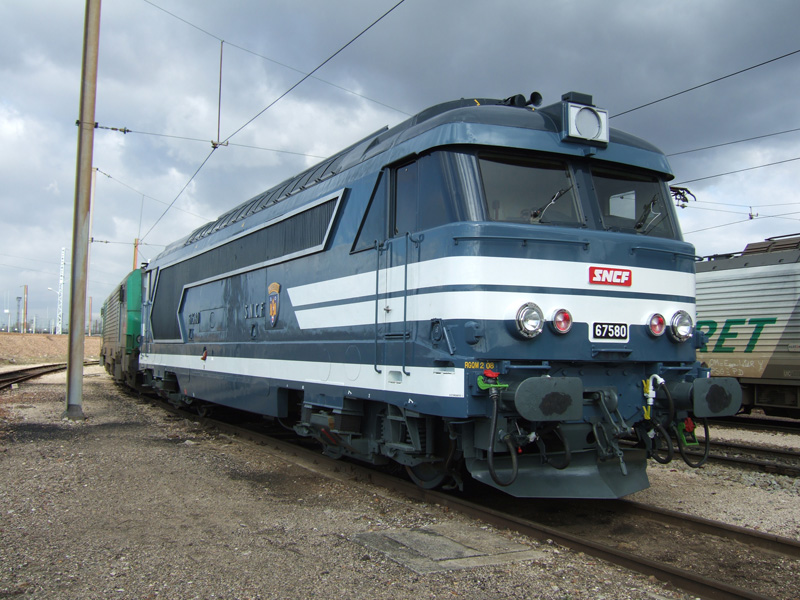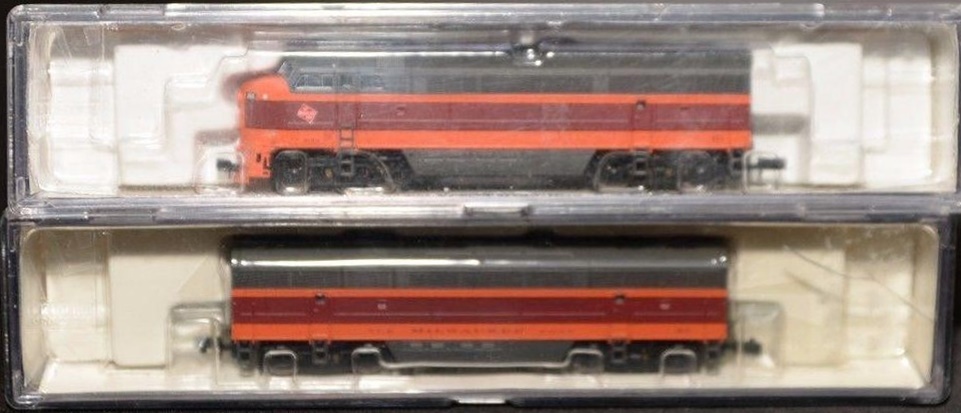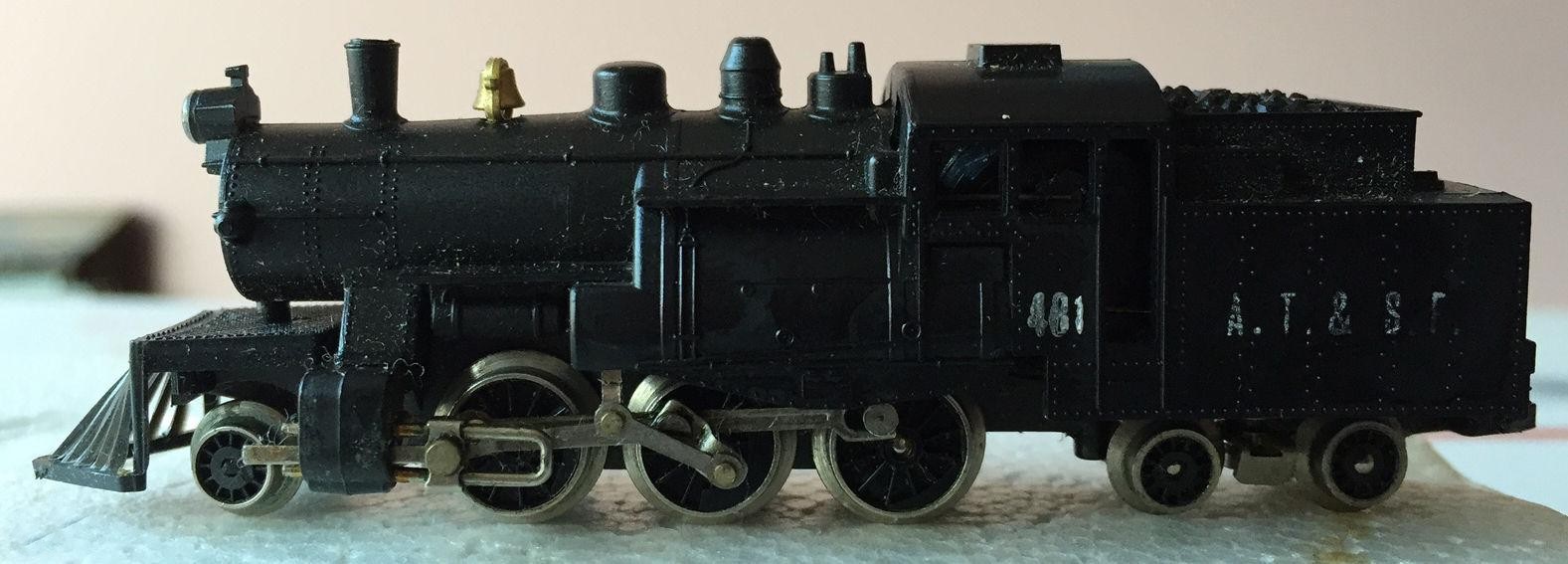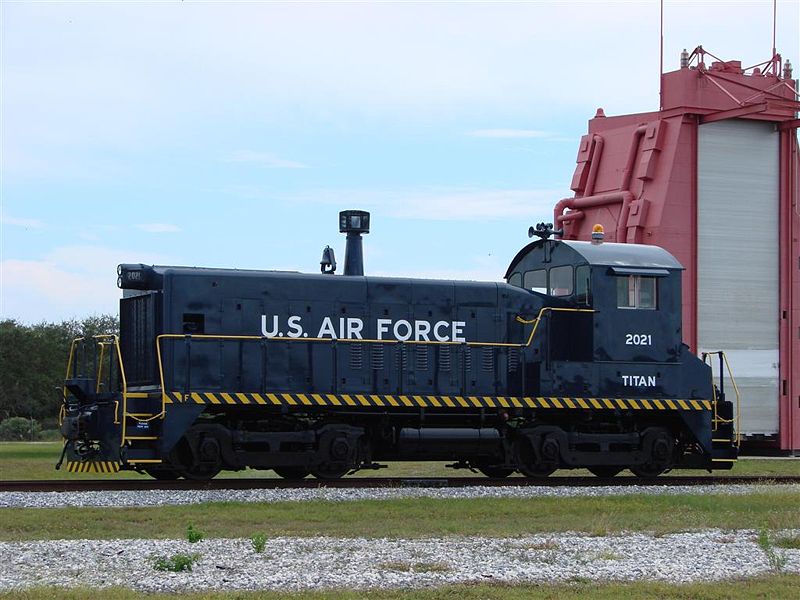Model Information: Life-Like introduced the SW9/1200 model in 1997. In 2003, they added the SW8/600/900 which is a very similar model which uses the same mechanism. It is fairly high quality and runs well when it can get good pickup. It is prone to stalling, however, whenever it has slightly dirty wheels, encounters slightly dirty track or runs over a turnout. For this reason, they are best run in pairs or at high speeds. That being said, the revised versions run better and the most recent releases that started in 2017 run quite well.
The reason for the stalling is due to the fact that it is simply a small, lightweight engine. Even though the chassis is all-metal and split-frame with a free-floating weight inside the cab, it just doesn't weigh all that much. Without enough heft, it is hard to keep conductivity with the track. The motor is s 5-pole skew-wound job. All eight wheels provide pickup and drive. Directional lighting is provided by an LED-equipped PC board mounted to the front of the chassis. The model uses chemically blackened wheels. Early runs used body-mounted Rapido couplers. Later versions feature Accumate or MTL couplers. The couplers are held in place with a plastic clip to permit easy swapping with the couplers of your choice.
Walthers also supplies the mechanisms for the latest 2017 DCC-Ready version to Micro-Trains which uses its own shell for their switchers.
The reason for the stalling is due to the fact that it is simply a small, lightweight engine. Even though the chassis is all-metal and split-frame with a free-floating weight inside the cab, it just doesn't weigh all that much. Without enough heft, it is hard to keep conductivity with the track. The motor is s 5-pole skew-wound job. All eight wheels provide pickup and drive. Directional lighting is provided by an LED-equipped PC board mounted to the front of the chassis. The model uses chemically blackened wheels. Early runs used body-mounted Rapido couplers. Later versions feature Accumate or MTL couplers. The couplers are held in place with a plastic clip to permit easy swapping with the couplers of your choice.
Walthers also supplies the mechanisms for the latest 2017 DCC-Ready version to Micro-Trains which uses its own shell for their switchers.
DCC Information: There is no specific support for DCC on these models, but installing a decoder in the cab is a usual solution.
A wired DCC decoder installation for this model can be found on the following:
- Brad Myers' N-scale DCC decoder installs blog.
- André Kritzinger's Chessie System in N scale website.
A wired DCC decoder installation for this model can be found on the following:
- Brad Myers' N-scale DCC decoder installs blog.
- André Kritzinger's Chessie System in N scale website.
Prototype History: An EMD SW8 is a diesel shunting/switching locomotive manufactured by General Motors Electro-Motive Division and General Motors Diesel between September 1950 and February 1954. Power is supplied by an EMD 567B 8-cylinder engine, for a total of 800 hp (600 kW). A total of 309 of this model were built for United States railroads and 65 for Canadian railroads. Starting in October 1953 a number of SW8s were built with either the 567BC or 567C engine, they are noted in the roster below.
Road Name History:  The Erie Lackawanna Railway (reporting mark EL), known as the Erie Lackawanna Railroad until 1968, was formed from the 1960 merger of the Erie Railroad and the Delaware, Lackawanna & Western Railroad. The official motto of the line was "The Friendly Service Route".
The Erie Lackawanna Railway (reporting mark EL), known as the Erie Lackawanna Railroad until 1968, was formed from the 1960 merger of the Erie Railroad and the Delaware, Lackawanna & Western Railroad. The official motto of the line was "The Friendly Service Route".
Like many railroads in the northeast already financially vulnerable from the expanding U.S. Interstate Highway System, the line was severely weakened fiscally by the extent, duration and record flood levels due to Hurricane Agnes in 1972. It would never recover, and most of the corporation's holdings were subsumed into the federal rescue purchases creating Conrail in 1976, ending its days as an operating railroad company.
Read more on Wikipedia.

Like many railroads in the northeast already financially vulnerable from the expanding U.S. Interstate Highway System, the line was severely weakened fiscally by the extent, duration and record flood levels due to Hurricane Agnes in 1972. It would never recover, and most of the corporation's holdings were subsumed into the federal rescue purchases creating Conrail in 1976, ending its days as an operating railroad company.
Read more on Wikipedia.
Brand/Importer Information:  Life-Like Products LLC (now Life-Like Toy and Hobby division of Wm. K. Walthers) was a manufacturer of model railroad products and was based in Baltimore, Maryland.
Life-Like Products LLC (now Life-Like Toy and Hobby division of Wm. K. Walthers) was a manufacturer of model railroad products and was based in Baltimore, Maryland.
It was founded in the 1950s by a company that pioneered extruded foam ice chests under the Lifoam trademark. Because ice chests are a summer seasonal item, the company needed a way to keep the factory operating year round. As model railroading was becoming popular in the post-war years, they saw this as an opportunity and so manufactured extruded foam tunnels for model trains. Over the years, Life-Like expanded into other scenery items, finally manufacturing rolling stock beginning in the late 1960s. At some point in the early 1970s, Life-Like purchased Varney Inc. and began to produce the former Varney line as its own.
The Canadian distributor for Life-Like products, Canadian Hobbycraft, saw a missing segment in market for Canadian model prototypes, and started producing a few Canadian models that were later, with a few modifications, offered in the US market with US roadnames.
In 2005, the company, now known as Lifoam Industries, LLC, decided to concentrate on their core products of extruded foam and sold their model railroad operations to Wm. K. Walthers.
In June 2018, Atlas and Walthers announced to have reached an agreement under which all Walthers N scale rolling stock tooling, including the former Life-Like tooling, will be purchased by Atlas.
Read more on Wikipedia and The Train Collectors Association.

It was founded in the 1950s by a company that pioneered extruded foam ice chests under the Lifoam trademark. Because ice chests are a summer seasonal item, the company needed a way to keep the factory operating year round. As model railroading was becoming popular in the post-war years, they saw this as an opportunity and so manufactured extruded foam tunnels for model trains. Over the years, Life-Like expanded into other scenery items, finally manufacturing rolling stock beginning in the late 1960s. At some point in the early 1970s, Life-Like purchased Varney Inc. and began to produce the former Varney line as its own.
The Canadian distributor for Life-Like products, Canadian Hobbycraft, saw a missing segment in market for Canadian model prototypes, and started producing a few Canadian models that were later, with a few modifications, offered in the US market with US roadnames.
In 2005, the company, now known as Lifoam Industries, LLC, decided to concentrate on their core products of extruded foam and sold their model railroad operations to Wm. K. Walthers.
In June 2018, Atlas and Walthers announced to have reached an agreement under which all Walthers N scale rolling stock tooling, including the former Life-Like tooling, will be purchased by Atlas.
Read more on Wikipedia and The Train Collectors Association.
Item created by: Alain LM on 2020-09-16 05:03:06
If you see errors or missing data in this entry, please feel free to log in and edit it. Anyone with a Gmail account can log in instantly.
If you see errors or missing data in this entry, please feel free to log in and edit it. Anyone with a Gmail account can log in instantly.


